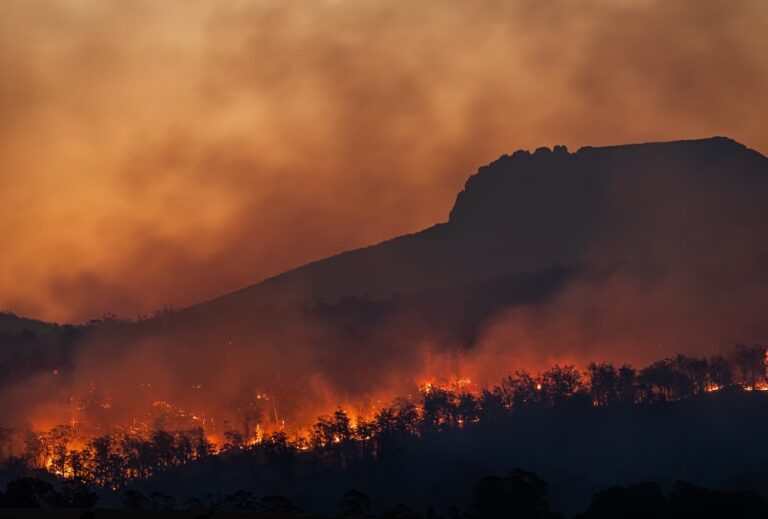Each of the last eight years has been the warmest on record, making this stretch a meteorological landmark. This alarming pattern demonstrates the critical importance of addressing the consequences of global warming immediately.
As we look into the problem of climate change, one irrefutable truth jumps out: our world is heating up at an alarming rate.
In this article, we will look into the significance of the past eight years, accentuating the effects of rising temperatures and the challenges that lie ahead in our fight against climate change.
Table of Contents
A climate in crisis
According to six key international temperature datasets aggregated by the World Meteorological Organization, the past eight years were the warmest on record globally, fuelled by ever-rising greenhouse gas concentrations and accumulated heat.
Sea level rise, heat waves, droughts, wildfires, and other extreme weather occurrences are now the new normal because of this.
Compared to the pre-industrial (1850-1900) era, the average worldwide temperature in 2022 was 1.15 [1.02 to 1.27] degrees Celsius higher. According to all datasets compiled by WMO, 2022 marks the eighth consecutive year (2015-2022) in which annual global temperatures have reached at least 1°C above pre-industrial levels.
The data speaks
The average global surface temperature has been rising steadily over the past eight years, as reported by respected organizations like NOAA and NASA’s Goddard Institute for Space Studies.
The European Centre for Medium-Range Weather Forecasts (ECMWF) and its Copernicus Climate Change Service, as well as the Japan Meteorological Agency (JMA), contribute reanalysis datasets that are used by WMO. To provide a comprehensive reanalysis of the atmosphere, a weather model is used to incorporate millions of meteorological and marine measurements, including those from satellites.
Temperature estimates can be made at any time and in any location on Earth, even in data-sparse places like the polar regions, by combining observations with modeled values.
According to the Berkeley Earth data set, the ERA5 reanalysis, and the JRA-55 reanalysis, 2022 is expected to be the fifth warmest year on record. In the three most comprehensive temperature datasets (HadCRUT5, NOAAGlobalTemp, and NASAGISTEMP), it ranks as the sixth warmest year. It’s important to remember, though, that the temperature differences between the fourth- and eighth-warmest years are negligible.
The margin of uncertainty for determining the average global temperature is represented by the tiny discrepancies between these datasets. The data on temperatures will be included in the WMO’s final report on the climate in 2022, due out in April 2023.
Updates to a provisional report produced in November 2022 on the occasion of COP27, covering information on all main climate indicators and selected climate consequences.
Impacts on the environment
The effects of global warming on ecosystems and species are far-reaching. Coastal settlements and low-lying islands are at danger as a result of rising sea levels caused by glaciers melting at an alarming rate.
Species are struggling to adapt to rapidly shifting environmental conditions, putting a heavy strain on ecosystems that have already suffered from habitat loss and disturbances in biodiversity. Warming oceans are bleaching and killing coral reefs, which are crucial to marine ecosystems and the survival of marine life.
The human toll
Global warming has far-reaching socioeconomic repercussions in addition to its environmental effects. Food and water shortages, population displacement, and heightened health risks are just some of the ways in which vulnerable people, especially those in poor nations, are hit hard by climate-related disasters.
Unpredictable weather has a negative impact on food production and the livelihoods of smallholder farmers. Furthermore, substantial economic losses are being caused by catastrophic weather occurrences, and sustainable development is being stymied as a result.
The high quantities of heat-trapping greenhouse gases in the atmosphere are likely to prolong global warming and other long-term climate change trends. According to the preliminary State of the Global Climate in 2022 report from the World Meteorological Organization, millions of people have been affected by extreme heat waves, drought, and disastrous flooding this year.
Urgency in action
The temperature records set during the past eight years should serve as a wake-up call, emphasizing the need for global climate action. In 2015, nearly all countries signed the Paris Agreement, which aimed to restrict global warming to far below 2 degrees Celsius over pre-industrial levels. This was an important step towards reducing the severity of climate change’s effects.
The shift to renewable energy sources, promotion of sustainable behaviors, and investment in climate resilience measures are all essential to making good on this pledge, but more needs to be done, and quickly, by all countries.
As a result, economic and human losses are significantly larger than they would be if all 193 Members had access to effective early warning services. The validity of weather forecasts is severely hampered by the widespread absence of fundamental meteorological data across Africa and island states.
A call to combat climate change
Indisputable proof of the urgency of the climate catastrophe is the eight-year streak of record-breaking warmth around the world. Every year, we see how human interference with the natural world and the daily lives of billions of people has repercussions.
For the sake of the current generation as well as the existence of future generations, it is imperative that we act jointly and firmly to battle climate change. Our planet’s future depends on our reaction to this global challenge, and the moment to act is now.
Read also: Climate change: what areas of the world are most vulnerable to extreme heat waves












